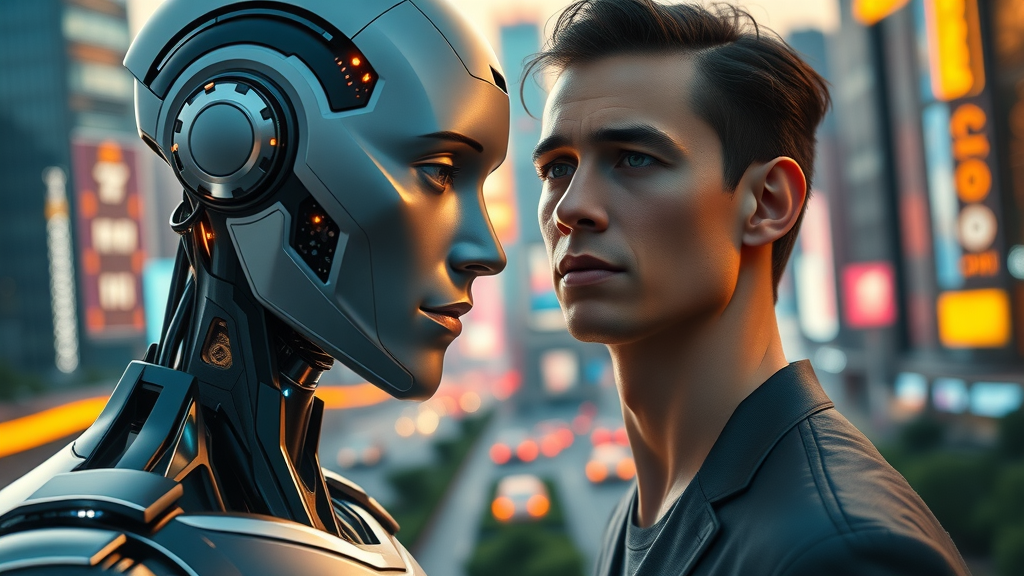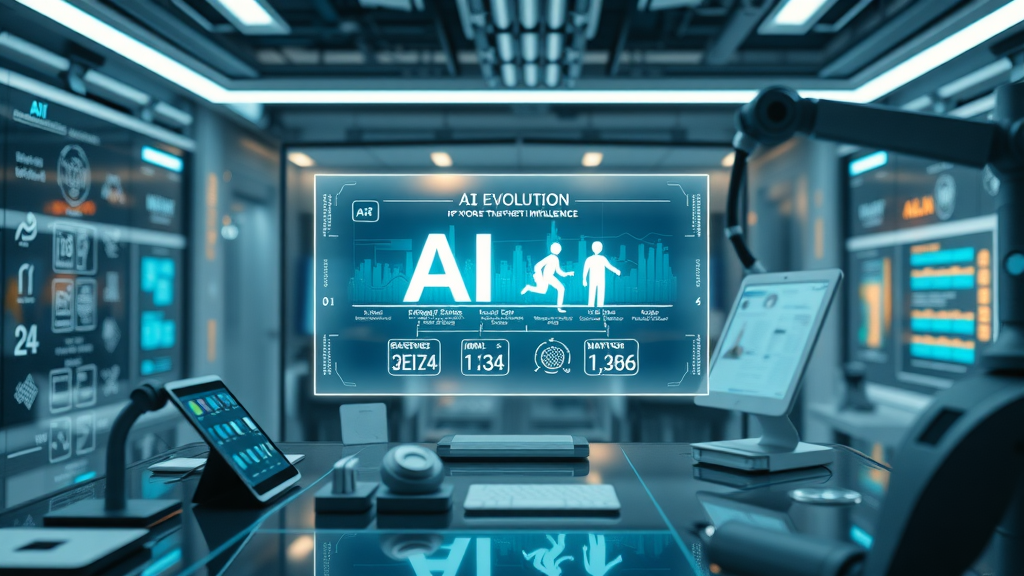Have you ever wondered how artificial intelligence has evolved from a mere concept to a transformative force in modern technology? In this article, we delve into the intriguing history of AI, tracking its evolution through time and uncovering the key innovations that have shaped the intelligent machines we interact with today.
The Captivating Journey of Artificial Intelligence
The history of AI is a story filled with visionary ideas, groundbreaking inventions, and relentless pursuit of machine intelligence. From ancient myths of automation to cutting-edge AI labs in modern research institutions, this journey is nothing short of mesmerizing.
Understanding the History of AI: A Timeline
- 1956: The term “AI” coined by John McCarthy at the Dartmouth Conference
- 1966: ELIZA, the first chatbot, developed by Joseph Weizenbaum
- 1997: IBM’s Deep Blue defeats chess champion Garry Kasparov
- 2011: IBM’s Watson wins the game show Jeopardy!
- 2023: AI achieves breakthroughs in language processing and image recognition

Who Invented the First AI? A Deep Dive into Innovators
"The science and engineering of making intelligent machines." - John McCarthy
The inception of AI can largely be attributed to several pioneering figures who envisioned a future where machines could mimic human intelligence. Among them, Alan Turing laid foundational ideas with the Turing Test, challenging researchers to create machines capable of exhibiting intelligent behavior indistinguishable from humans.

Four Types of AI: Classification and Examples
Reactive Machines
These are the most basic forms of AI systems that respond to input with a simple output. Classic examples include Deep Blue, the chess-playing computer, which was designed to strategically calculate the best possible moves without any understanding of the game outside the chessboard's current state.

Limited Memory
Limited memory AI systems can make decisions based on previous observations, such as autonomous vehicles that use data collected over time to better understand the environment and navigate safely. This type of AI relies on large amounts of data to learn from past information. For more insights on AI's capabilities and limitations, explore Understanding the Limitations of Generative AI in Rare Information Representation.
Theory of Mind
Theory of Mind AI continues to be a concept that has not yet been fully realized. It aims to develop machines that can understand emotions, beliefs, and thoughts, bridging the gap between human and machine interaction to a new level. This advancement would allow for social robots capable of engaging with humans more empathetically.

Self-aware AI
Currently, self-aware AI remains a theoretical concept, where machines would possess awareness comparable to that of humans. It remains a topic of both excitement and caution due to the potential ethical implications of creating AI that is truly conscious.
Evolution of AI: Past, Present, and Future
- The genesis of AI research dates back to the mid-20th century with the pioneering efforts of Turing and McCarthy.
- The AI winter periods in the 1970s and 1980s were marked by reduced funding and interest.
- The AI boom of the 21st century brought advances such as neural networks and deep learning.
AI in the 20th Century
The early days of AI research in the 20th century saw the development of foundational theories that would later pave the way for practical applications. Academic enthusiasm, although initially high, faced challenges due to technical limitations and high expectations, leading to what became known as the AI winter.

21st Century Breakthroughs
Today's AI is characterized by rapid advancements in understanding language, recognizing patterns, and executing tasks with minimal human intervention. AI applications today span a broad range, including healthcare, finance, and AI chatbots offering personalized customer interactions. Discover how AI is transforming education management in Exploring the Transformation of Education Management with AI.

Future Possibilities and Implications
AI's future holds promises of creating more powerful AI models that can solve complex problems, improve efficiency across industries, and enhance human capabilities. Ethical considerations and the impact on jobs are ongoing discussions as AI continues to evolve.
What You'll Learn from This Explore
- Understanding the origins and development of AI.
- Insights into key AI technologies and their applications.
- Anticipated future directions and possibilities in AI.
Comprehensive FAQ on AI Evolution
What is the history of AI?
The history of AI is a fascinating exploration of innovative ideas starting from early concepts in the mid-20th century, developing through phases of significant scientific breakthroughs and setbacks known as AI winters, to the explosive growth and adoption we witness today.
Who invented the first AI?
While no single individual can be credited with the invention of AI, key contributors like Alan Turing and John McCarthy provided foundational theories and insights essential for the birth of AI as a scientific field.

What are the 4 types of AI?
The four types of AI are Reactive Machines, Limited Memory, Theory of Mind, and Self-aware AI, each representing different levels of sophistication in terms of capability and application.

How has AI evolved over the years?
AI has evolved from being primarily theoretical with limited applications, to becoming a multidisciplinary field impacting vast aspects of everyday life, with advancements in computing power and data availability driving forward its capabilities.
Key Takeaways: Lessons from the AI Revolution
- Embracing AI's potential while addressing its challenges can lead to transformative societal changes.
- Understanding the importance of ethical considerations in AI development to ensure responsible usage.
Concluding Thoughts on AI's Evolution
Impact on Society and Future Directions
AI continues to redefine industries and challenge our understanding of technology's role in society. Staying informed and ethically engaged will be crucial as we forge new paths in AI's development. Discover AI Africa News
 Add Row
Add Row  Add
Add 



Write A Comment